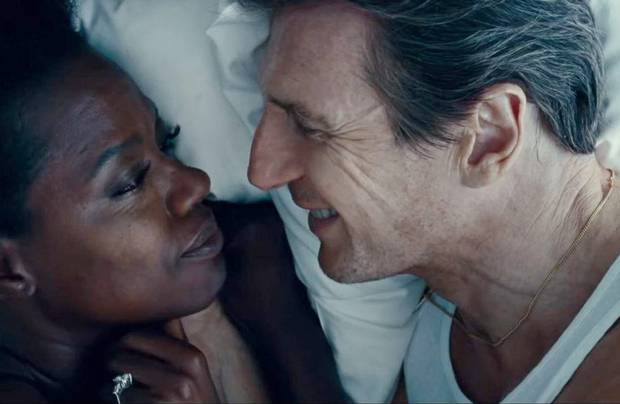@Filmhouse, Edinburgh from Tue 6 Nov 2018
A heist thriller is not the kind of project most would expect of Steve McQueen given his career to date, especially one with its roots in a pulpy early 80’s TV show. Not only is Widows a huge leap into the mainstream from his more arthouse beginnings, but his earlier works are aren’t characterised by their action. In fact, his protagonists are marked by a certain stasis. Solomon in 12 Years a Slave endures his circumstances instead of being an active participant. Sex-addict Brandon in Shame becomes so cocooned in his vices that he loses his sense of self, and in Hunger Bobby Sands martyrs himself in a nakedly political act of passive-aggressive infirmity. It’s true that the widows of Widows are forced into action, but these are driven and active participants, and McQueen proves himself one of the most important filmmakers today in a wonderful, gripping thriller that has the momentum of a runaway train while sacrificing none of his eye for compelling characters. That it is co-written by Gillian ‘Gone Girl‘ Flynn, who knows a thing or two about complex (and dangerous) women also helps.
After the deaths of their husbands in a botched heist, their widows find themselves threatened by the crime boss whose money went up in flames with their spouses. With a month to find $2m, the women resolve to carry out a final job the men had planned in meticulous detail, but never got the chance to implement. Viola Davis is Veronica, the widow of Harry (Liam Neeson). He was the ringleader of his gang and so Veronica steps up to fill that role. Widows is ostensibly centred around Veronica, and Davis is unsurprisingly great as she goes from pampered wife to steely criminal mastermind.
She’s backed by a superb supporting cast, including Michelle Rodriguez, Carrie Coon, and Bad Times at the El Royale breakout star Cynthia Erivo, but the most striking performance comes from Elizabeth Debicki as Alice. She has the most clearly-defined arc of all; initially fragile, but subtly ambivalent about her husband’s death after it’s revealed he was abusive. She slowly emerges as a tough and resourceful asset in the gang. Awards recognition would be no surprise.
For all its action – and the film is full of astonishing set-pieces, while retaining tension even its quieter moments – there are powerful messages about inequality, race, gender, corruption and unwanted family legacies that rise to the surface gradually rather than being front-and-centre. This is best exemplified in a shot that follows a conversation about power between politico Colin Farrell and his assistant in which the dialogue takes place off-screen as the car journeys from a rundown black neighbourhood to his more palatial abode. The juxtaposition between the backdrop of ‘legitimate’ political dealings and criminal activity is clear, like a stripped-back, zippy version of The Wire, and it adds further subtext to a film that crams so much in that its lengthy run-time struggles to contain it all.
Any missteps are minor, such as a reference to police brutality so brief you wonder why it was included other than as a perennial hot topic, and the sudden disappearance from the story of Alice’s creepy, smothering mother played by Jacki Weaver. The subplot between the two was especially intriguing and the lack of resolution is slightly jarring. These little blips are otherwise inconsequential as we’re swept away in the rush that this movie induces. A second viewing may be required to piece together some of the story lines, but one leaves Widows with the desire to head straight back into the cinema for another helping. It’s such a surprise that a film this accessible has come from McQueen, but a delightful one. It’s full of suspense, humanity and action; a weighty drama with big themes that never forgets to be entertainment first and foremost. It’s undoubtedly one of the very best films of the year.
